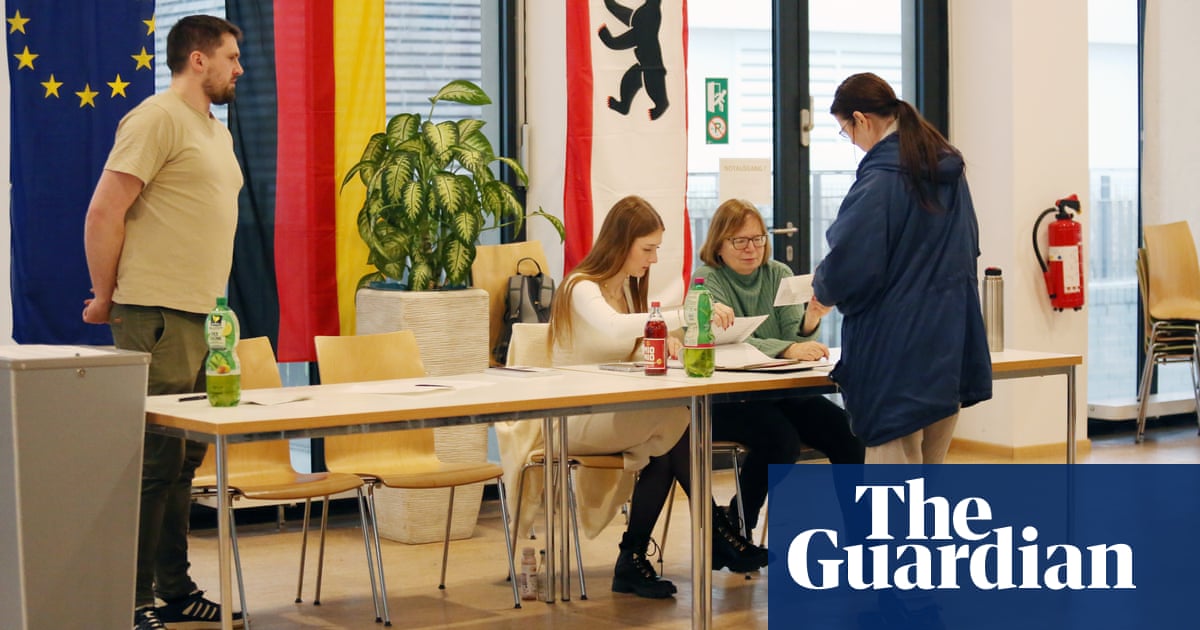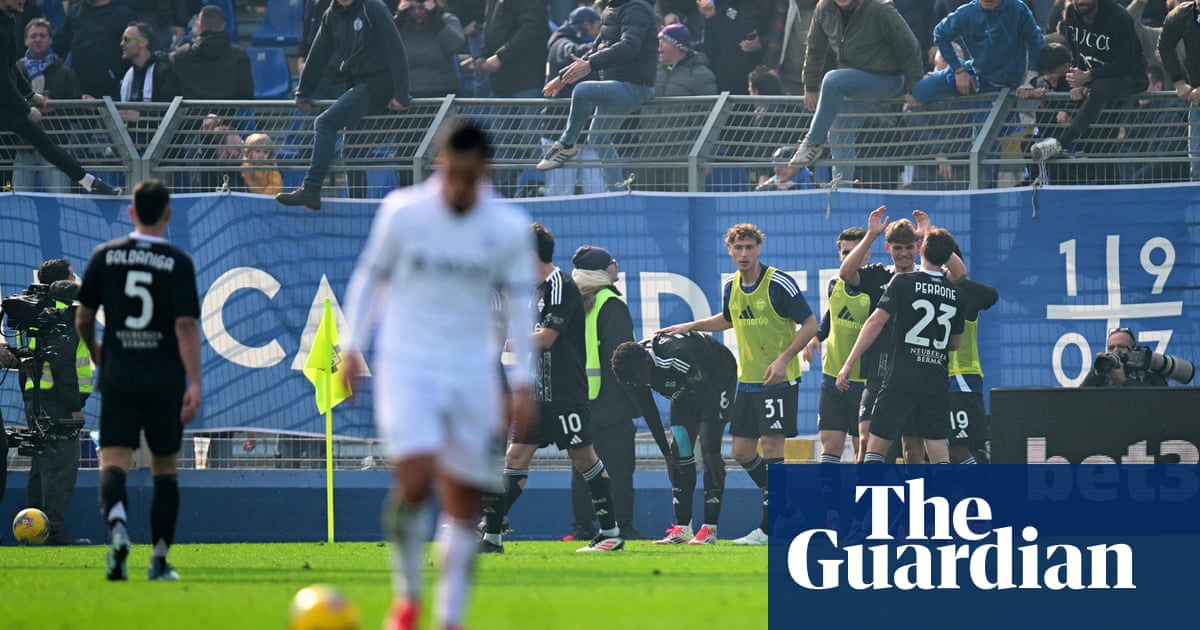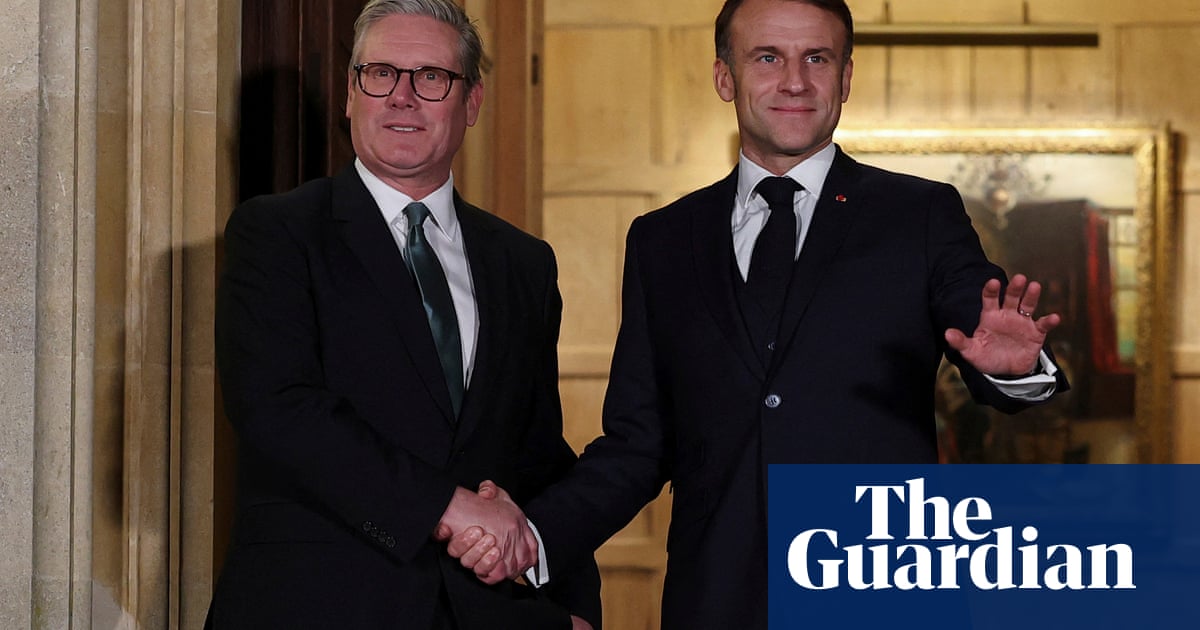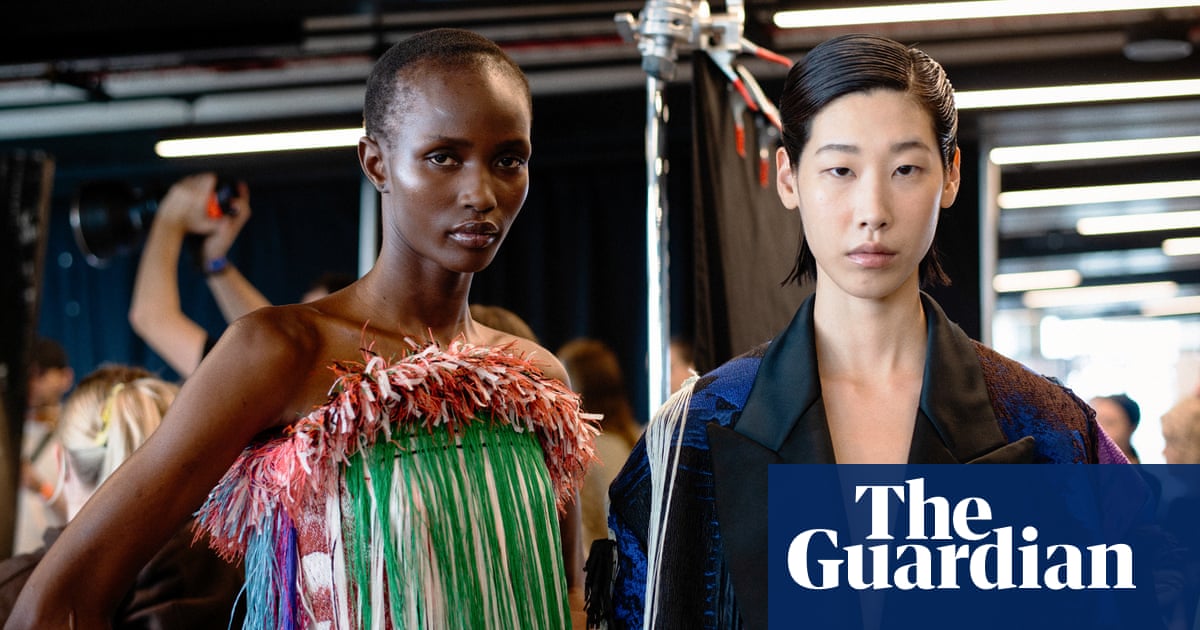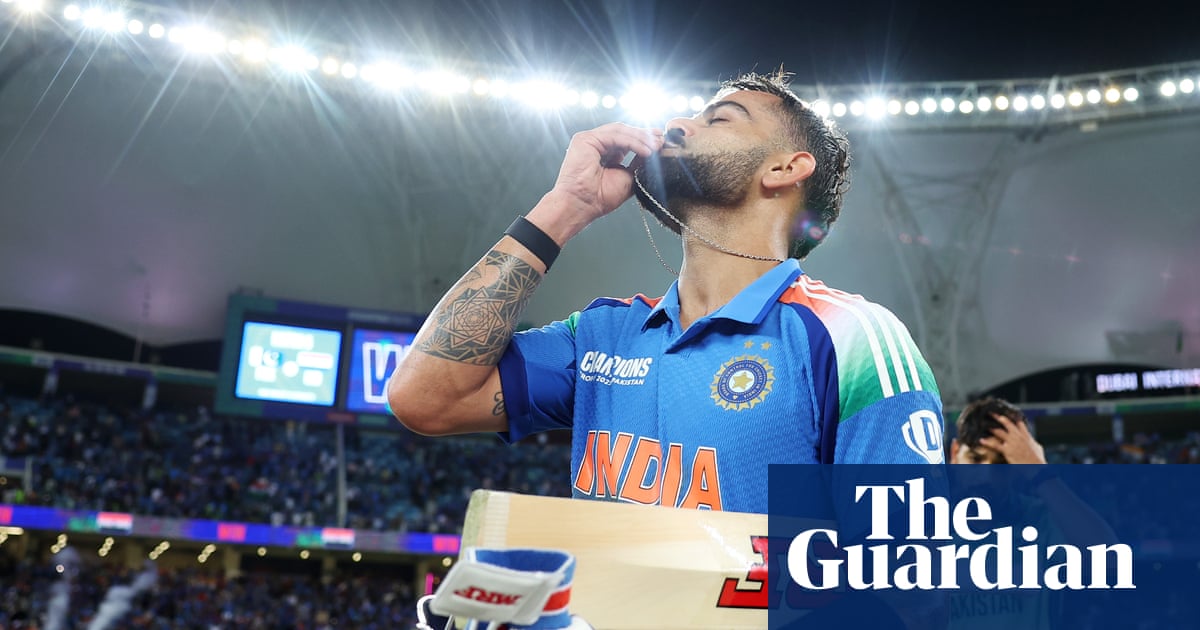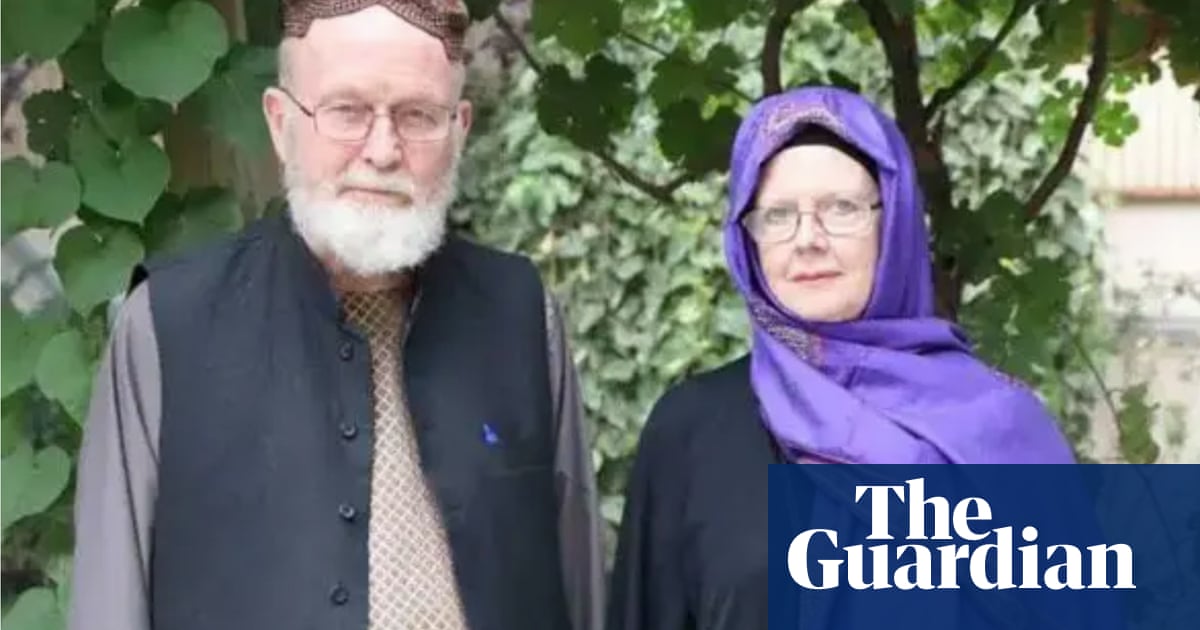Even as a proud Middlesbrough lass with ample experience of cold evenings coaching, the Norway manager, Gemma Grainger, was unprepared for her first trip to Oslo. “I came out of the airport and it was minus 24. They were laughing at me because I had some trousers on with trainer socks. ‘Are you crazy?’ Norwegians say: ‘There’s no such thing as bad weather, just bad clothing.’ It’s a nation with a fascinating grit and determination. The snow, for months on end, is about five- or six-feet high and there’s not an eyelid batted.”
Thankfully for Grainger, this week Norway are training in marginally warmer climes near her home in Leeds, using Leeds United men’s team’s pitches to break their journey as they prepare to face Northern Ireland in a playoff for a place at next summer’s European Championship, starting with Friday’s leg at Inver Park in Larne. A week ago she was helping a small grassroots team in the east of Oslo, Forward IL, with eyes on the future of the sport.
“Before every international camp I will go and visit a girls’ club in Oslo and take a coaching session to connect with the community,” Grainger says. “It’s part of our higher purpose here and something that myself and the players are really passionate about: growing women’s football in Norway. When I was a young coach [working at Middlesbrough Football Club in the Community] I had a bag of footballs, cones and bibs in the boot of the car and I would travel around Middlesbrough going to after-school sessions. I don’t forget those grassroots clubs – they’re a big part of who I am. “My mum used to say to me: ‘I think you should be a PE teacher, that’s the career for you.’ But I was adamant I was going to be a coach.”
The former England manager Ted Copeland first saw potential in Grainger in the profession. When an 18-year-old Grainger was captaining the side Copeland was managing in the north-east, and he suggested she join him at a primary school coaching session. She has never looked back, going on to manage Leeds and her beloved hometown club, Middlesbrough, and work with England’s youth teams before taking on the Wales job in 2021.
A heartbreaking 120th-minute winning goal for Switzerland in October 2022’s World Cup playoffs dashed her dreams of leading Wales to a major tournament, and in January 2024 she left for the Norway role. It is clear how much respect and affection Grainger retains for the Wales team, and she says her “ideal scenario would be that Norway qualify for the European championships and Wales do also”. So why did she leave?

“It was the potential in this team. We have so many players who are such high-quality players and they deliver in clubs all across Europe. So for me it was a huge honour to step into this position and I’m really enjoying it. I knew it [had to be] something special to take me away from Wales. If I’m honest, I knew from the very first conversation that I had that this was something that was really going to suit me and who I am. Norway is a very progressive country. In terms of football, they’re very ambitious, and that matched who I am as a person. It’s been a great decision for me.”
In 10 games, all competitive fixtures, Grainger has lost once, away to the Netherlands, and secured five victories, including 13-0 on aggregate against Albania in the first round of the Euros qualifying playoffs last month. Norway’s men have not qualified for a major tournament for 24 years but the women have a proud history, as the 1995 world champions, the Olympic champions of 2000 and two-times Euros winners, and they are craving more.
“I wear a badge that has a star above it,” Grainger says. “It’s so important to be respectful of that history. And then this group, we respect the history but we’re right here in the present and the potential is high. We want to be a team that goes into a tournament next summer and really delivers.
“We know [against Northern Ireland] we’re the higher-ranked team. We know that Northern Ireland will be tagged as the underdogs, and it’s something that we’re aware of. The players are excited, I’m excited and the staff are excited. There’s a real determination and desire within the group to be successful.”
Grainger’s idol is someone who took success in international football to a whole different level. The former Germany head coach Silvia Neid won back-to-back European titles, having done so as a player, and was the subject of a study Grainger undertook as part of her Uefa Pro Licence coaching qualification course in 2014, when the German invited her to attend her camp.
after newsletter promotion
“She was the first female coach I looked at and thought: ‘Oh wow, I want to win the European championships, I want to win World Cups,’” Grainger says. “She had an aura. I used to look at her and think she was calm, collected and a serial winner. The way she dealt with big players in that German team, I was fascinated.”

There is no shortage of big names in Grainger’s squad. If the Chelsea winger Guro Reiten, Arsenal forward Frida Maanum and Barcelona winger Caroline Graham Hansen were not enough, they also have three Manchester United regulars, in the striker Elisabeth Terland, winger Celin Bizet and midfielder Lisa Naalsund. Then comes Ada Hegerberg, the Women’s Champions League’s all-time leading goalscorer and a Ballon d’Or winner.
By Norway’s standards they are in something of a dry spell, having not reached a major semi-final for 11 years. But a country of 5.5 million people has a passion for the sport that has caught Grainger’s heart. “I see young girls and young boys going to training, they’ve got their backpacks, they’ve got their gloves on, it’s minus 10 and they’re walking to training. The participation numbers are so high relative to the population. There’s a respectful, trusting nature with Norwegians, but also that resilience, to live in a country so cold and to just get on with it. They’re teaching me a lot, and most importantly teaching me how to dress well in cold weather.”

 2 months ago
45
2 months ago
45




